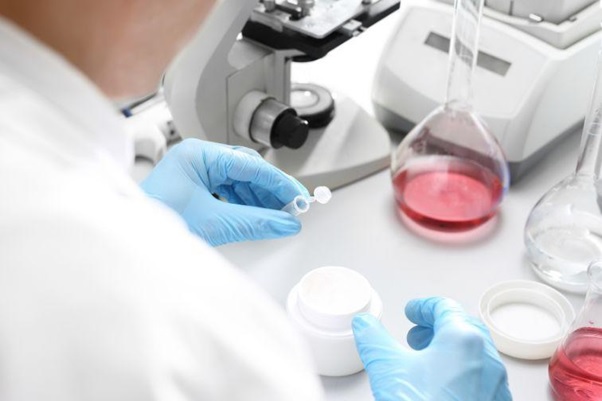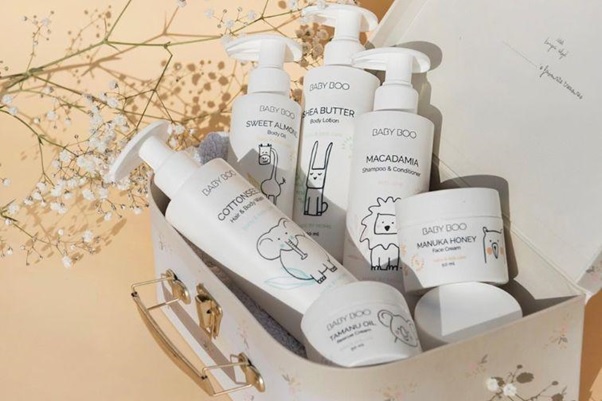Parabens in skincare: Why we should avoid them
09 јун 2024

Parabens in skincare cause a lot of discussions, questions, doubts, and concerns nowadays.
While these chemicals have long been utilized to extend product shelf life and prevent microbial growth, mounting evidence suggests their presence may affect personal health and the environment.
You probably come across parabens, especially if you've ever skimmed through the labels of cosmetic products out of curiosity or boredom.
Many overlook the term "paraben" and consider it a typical cosmetic ingredient.
But when you understand the parabens and what they are, you may think twice before choosing cosmetic products with these ingredients.
What are parabens?
Parabens are a group of synthetic preservatives widely used in skincare and cosmetic products to prolong their shelf life. They are added to various formulations such as creams, lotions, shampoos, conditioners, deodorants, and makeup to prevent the growth of mold, yeast, and bacteria, thus maintaining the product's quality and safety over time.
Most cosmetic products contain water, making them a fertile ground for mold and microorganisms. Parabens are used to prevent microbial growth and infections on the skin that can result from spoiled skincare products. Parabens work well to stop germs from growing because they can get into the skin and stay strong in different environments.
Types of parabens in skincare products
Under the umbrella of parabens, you'll find a considerable group of chemical compounds, but the following types are most prevalent in cosmetics:
Methylparaben (E218): A synthetic preservative commonly found in creams, lotions, shampoos, toners, deodorants, and many other cosmetic products. Methylparaben can be easily identified on product labels as E218, 4-hydroxy methyl ester of benzoic acid, methyl 4-hydroxybenzoate, or simply "Methylparaben." It is used in concentrations ranging from 0.1% to 0.5%.
Propylparaben (E216): Possessing similar properties to methylparaben, propylparaben is typically found in cosmetic products as a preservative under labels such as E216, p-hydroxybenzoic acid, or simply "Propylparaben." It is used in concentrations ranging from 0.01% to 0.5% and is often combined with other preservatives such as methylparaben or butylparaben.
Ethylparaben (E214): Primarily used in combination with butylparaben, ethylparaben is labeled as E214 or "Ethylparaben." When it comes to cosmetic products, it is most commonly used in concentrations ranging from 0.1% to 0.5%.
Butylparaben (E209): Typically found in cosmetic products as a preservative under labels such as E209 or "Butylparaben." It is used in concentrations ranging from 0.1% to 0.4% and is often combined with other preservatives such as methylparaben, ethylparaben, or propylparaben.
While these labels may initially seem complicated, understanding them will facilitate the reading of cosmetic product labels and help you recognize whether they contain parabens and which type.

But why is this important at all?
In recent years, parabens have been considered harmful ingredients in cosmetic products that may affect health over a prolonged period.
Why should we avoid parabens in skincare?
Although widely used in cosmetic products, parabens belong to a group of synthetic chemical ingredients that should be avoided.
The extent of harm caused by parabens is a subject of conflicting opinions. However, the fact remains that some EU countries, such as Sweden and Denmark, have banned parabens in the composition of cosmetic products, especially those intended for children, which speaks to their harmfulness.
There are several potential health risks associated with parabens in cosmetics, although there is no research or evidence to confirm these claims fully. Among the most commonly cited health risks associated with the use of parabens are:
Hormone disruption and reproductive issues
Scientific studies have suggested that parabens possess estrogenic properties, meaning they can mimic the hormone estrogen in the body. This mimicry can potentially disrupt the endocrine system, leading to hormonal imbalances. There is also a certain risk that prolonged exposure to parabens and the so-called estrogenic compounds that are formed when paraben binds to estrogen increase the risk of breast cancer.
Reduced fertility in men and women
Some studies examining the impact of parabens have found a direct link between parabens and fertility in men and women. Exposure to parabens through products over an extended period may potentially lead to decreased fertility. In women, a decrease in thyroid function, which affects several vital functions, including fertility, has also been observed.
Organ toxicity
Many individuals use a variety of skincare and cosmetic products daily, each potentially containing different types and concentrations of parabens. If parabens accumulate over time in the body, they potentially lead to organ toxicity. This is because parabens do not break down in the body but accumulate around bones and the heart.
Negative skin reactions
Usage of parabens can cause irritation, itching, redness, and other skin problems. It is also classified as an allergen, so various allergic reactions that are first noticed on the skin can occur.
The impact of parabens on human health is still researching, but regardless of whom or what you believe, it is best to choose products that do not contain them, such as natural cosmetics.
Natural skincare products as a way to avoid paraben use
Considering that sometimes just one product can contain 4.5 types of parabens, it's clear that this brings many risks, especially for children. To avoid questioning your decisions and potentially putting our children at risk, you can always opt for natural cosmetics with organic ingredients that not only don't contain parabens but also other harmful ingredients.
We use at least one cosmetic product daily for our children's care, and over time, that number increases. From shampoos, creams, and lotions, to baths, standard cosmetic products all contain parabens, and sometimes, the positive effects of some other ingredients are negated over time.
Consumers have increasingly favored natural cosmetics without parabens in their pursuit of healthier and more environmentally friendly skincare options. These products offer a cleaner, safer alternative to traditional skincare formulations while harnessing the power of nature's ingredients.

Baby Boo cosmetics offer all the products necessary for the daily care of babies, children, and the whole family can use them without parabens, sulfates, colors, phthalates, formaldehyde, silicones, mineral oils, and allergens.
Baby Boo products are made from organic ingredients that have undergone a certification process and are dermatologically tested.
It is crucial to care for babies and children consciously and responsibly. There is no need to experiment with choices and potentially expose our children to risk.
We can depend on and revert to natural care, which, apart from ensuring 100% safety for you and your children, aligns with nature within and around us.
If you've decided to live without parabens, our webshop allows you to have products for care without today’s harmful ingredients.









